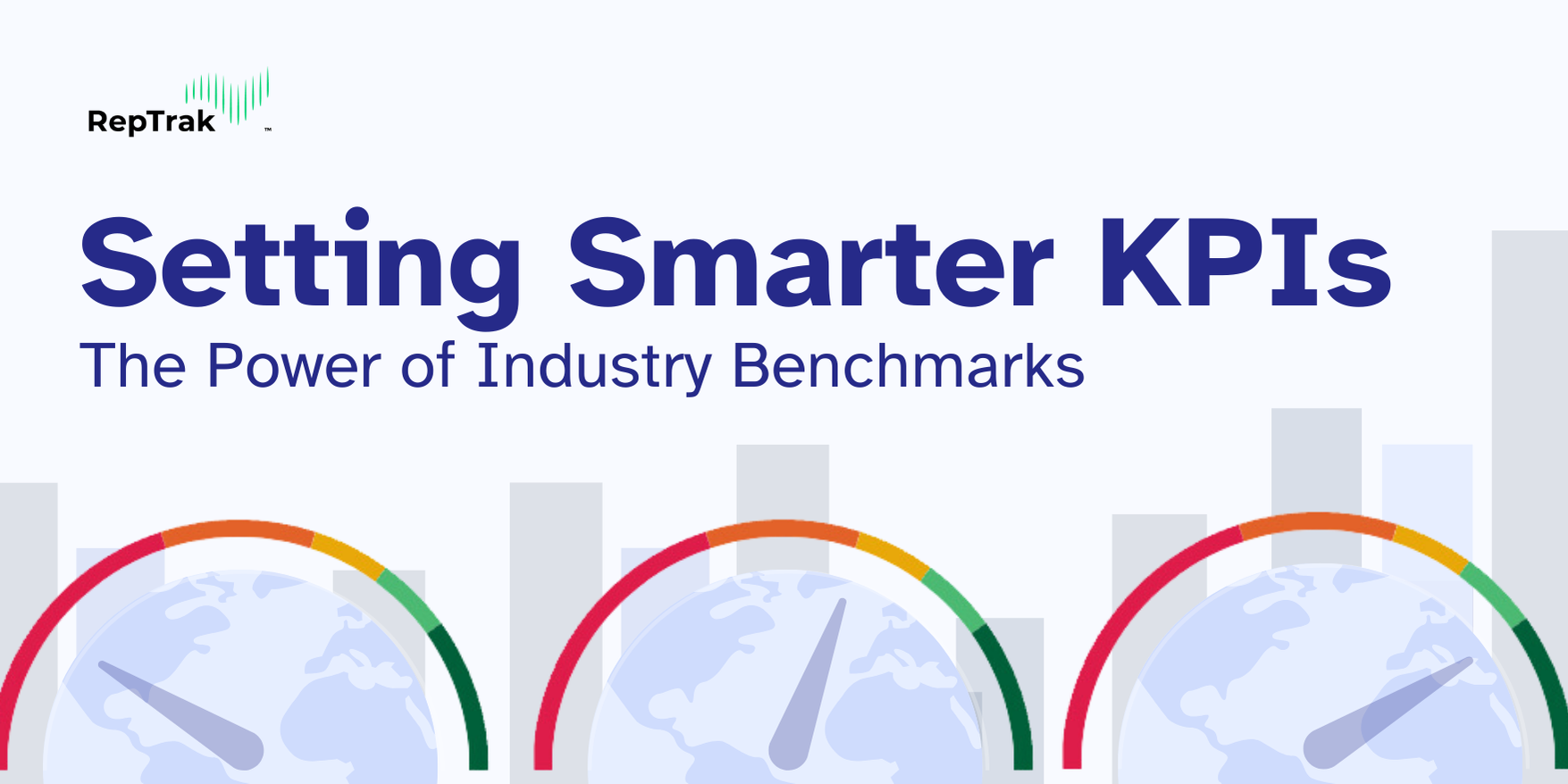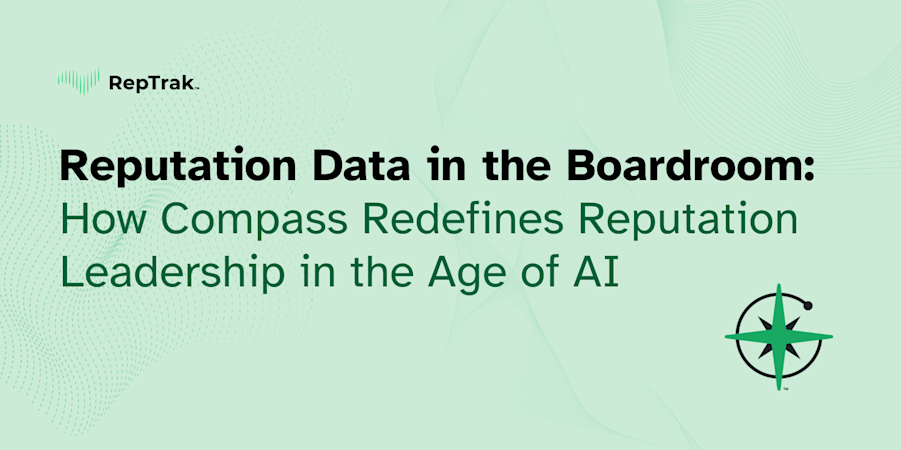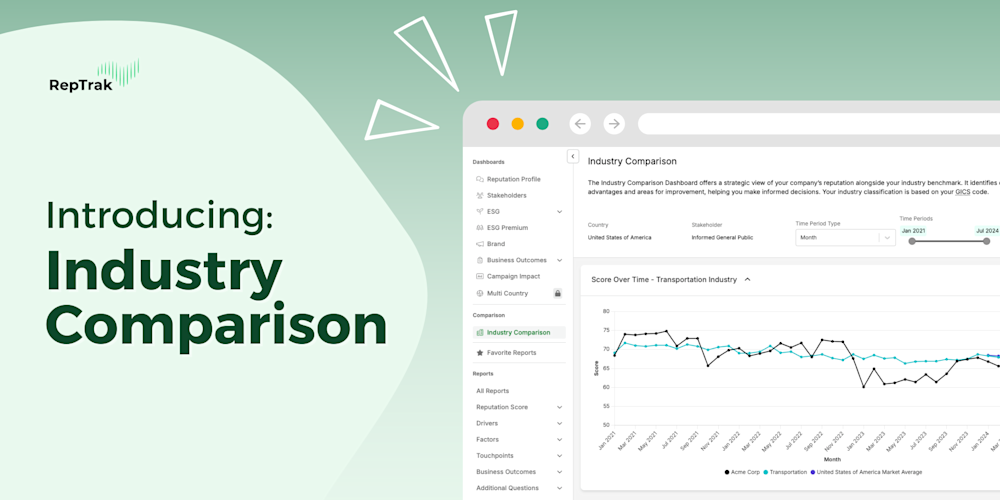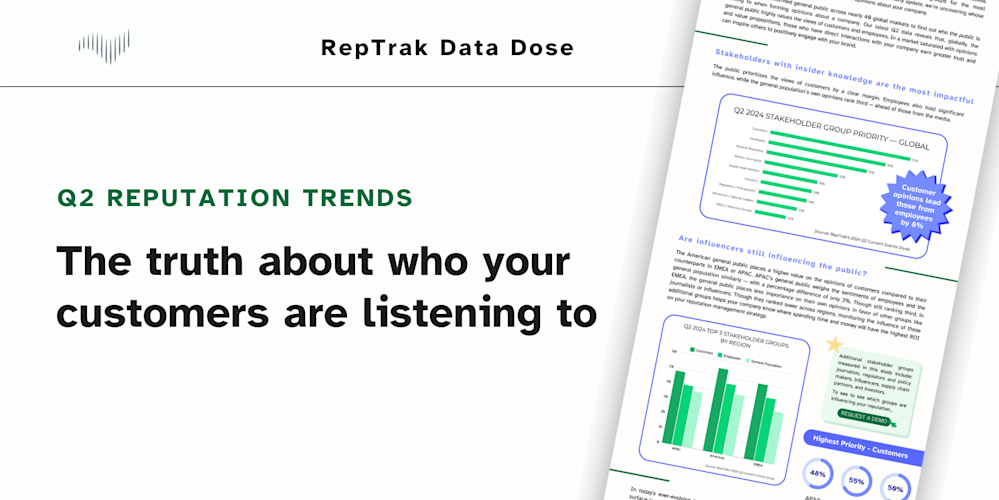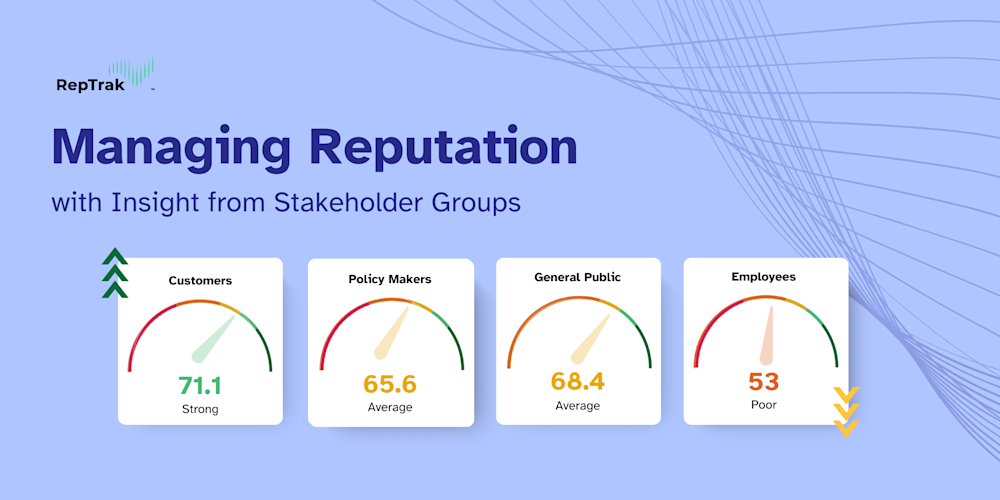Setting Smarter KPIs: The Power of Industry Benchmarks
Blog Post12 Sep, 2024
In today’s business landscape, your company’s reputation doesn’t exist in a vacuum — it’s deeply influenced by the broader perception of your industry. Setting the right Key Performance Indicators (KPIs) to measure and manage your reputation is essential, but it requires more than internal metrics. Industry benchmarks provide that necessary context, offering insights into how your company compares to others in your sector. With these benchmarks, you can set KPIs that not only reflect market realities, but also help you position your company to either distance itself from industry challenges or capitalize on positive trends. This data-driven approach ensures that your KPIs are grounded in real-world dynamics, pushing your reputation strategy forward.
Key Benefits of Using Industry Benchmarks
Set Attainable Targets: Benchmarks help you avoid the trap of setting KPIs that are either too conservative or overly aggressive. They provide a reality check that ensures your goals reflect what's happening across the industry.
Gain a Competitive Edge: Knowing how your company compares to industry peers lets you pinpoint where you can stand out — and where you need to close gaps.
Build Accountability: KPIs grounded in external data are easier to justify to stakeholders. When your targets reflect broader industry dynamics, it strengthens your case for why those goals matter.
Strategic Approaches to KPI Setting
Not every KPI needs to follow the same formula. Your approach should reflect where your company stands and what it aims to achieve.
Maintain Momentum: If you're already outperforming the industry, your KPI might be to sustain that lead.
Close the Gap: For companies looking to catch up with top performers, setting a KPI to match or exceed benchmark scores helps sharpen your focus.
Lead the Pack: For innovators, KPIs should push beyond existing benchmarks and aim to set new standards.
Driver-Specific KPIs
RepTrak’s 7 Reputation Drivers can help you align KPIs with broader goals specific to key areas of your business. Industry benchmarks can also tell you how those same 7 business areas are perceived across your industry.
Example: RepTrak’s Citizenship Driver examines a company’s reputation as a socially responsible organization. If your industry is lagging in sustainability efforts, a KPI focused on raising your Citizenship Driver Score will set you apart from the competition and meet stakeholder expectations.
Using Long-Term Data to Build KPIs That Last
KPIs grounded in short-term data or trends often lead to reactive, rather than proactive, strategies. For sustainable growth, you need KPIs built on long-term data. By analyzing industry benchmarks and trends over several years, you can establish KPIs that are not only durable but also forward-thinking. This long-term perspective ensures that your goals are based on evolving market standards, helping you stay competitive while building a reputation strategy that endures.
Staying Flexible as the Market Changes
While long-term data provides a solid foundation, flexibility is key to keeping your KPIs relevant. As new trends, regulations, and market conditions emerge, it’s crucial to revisit and adjust your targets. Regularly refining your KPIs ensures they stay aligned with the latest industry insights and market shifts. This adaptability allows your strategy to evolve without losing sight of the long-term goals that drive sustainable success.
Introducing RepTrak’s Industry Benchmark Dashboard
If you’re looking for a tool to elevate your KPI-setting process, RepTrak’s Industry Comparison Dashboard offers a comprehensive solution. The dashboard provides detailed insights across various industries and markets, helping you set smarter, data-driven KPIs that align with market realities.
Ready to set KPIs that push your communications strategy forward? Explore RepTrak’s Industry Comparison Dashboard today and see how it can help you align your goals with industry standards.
